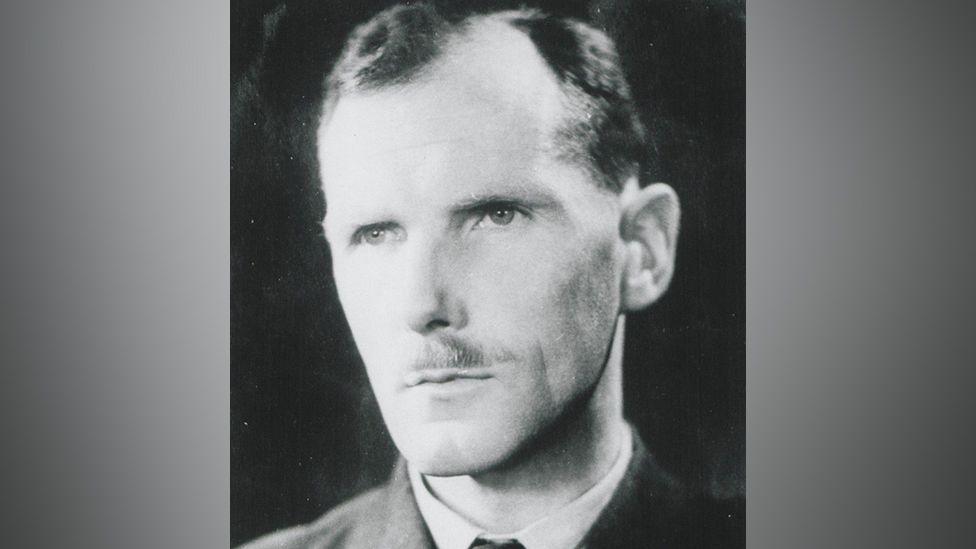The weather forecast that changed D-Day

Group Capt James Stagg was the chief meteorological adviser on D-Day
- Published
Weather forecasts in June 1944 played a vital role in D-Day as soldiers gathered in southern England waiting to head to Nazi-occupied France.
More than a year in the planning, US Gen Dwight D. Eisenhower had hoped for the invasion to take place on 5 June but after meeting with weather experts at Southwick House, Portsmouth, he changed the launch date.
Scotsman, Group Capt James Stagg, was the chief meteorological adviser and predicted there would be a storm on 5 June but a break in the bad weather the following day.
It meant Operation Overlord was able to go ahead on 6 June 1944.

The forecast by Group Capt Stagg and his team meant that Operation Overlord was able to go ahead on 6 June 1944
At the start of June, ships and landing craft, packed with men and equipment had been at sea for several days, waiting for action.
For troops to establish a good foothold in Normandy they needed a full moon, low tide, light winds, clear skies and low seas.
The crucial information analysed by senior RAF officer Group Capt Stagg and his team came from a ship in the Atlantic, which reported a rise in pressure off the west coast of Ireland.
In his memoirs US Gen Eisenhower admitted that landing on the 5 June would have been a "major disaster".
Largest seaborne invasion in history
The Normandy landings were the largest seaborne invasion in history and laid the foundations for the Allied victory in World War Two.
Troops from the UK, the US, Canada, and France attacked German forces on the coast of northern France, on 6 June 1944.
D-Day involved the simultaneous landing of tens of thousands of troops on five separate beaches in Normandy.
Portsmouth played a key role in the planning and preparation of the D-Day landings, which is reflected 80 years later by the country's major commemoration being held in the Hampshire city.
Follow BBC South on Facebook, external, X (Twitter), external, or Instagram, external. Send your story ideas to south.newsonline@bbc.co.uk, external or via WhatsApp on 0808 100 2240, external.
Related topics
More on D-Day
- Published16 May 2024

- Published5 June 2019

- Published2 December 2023

- Published1 May 2014